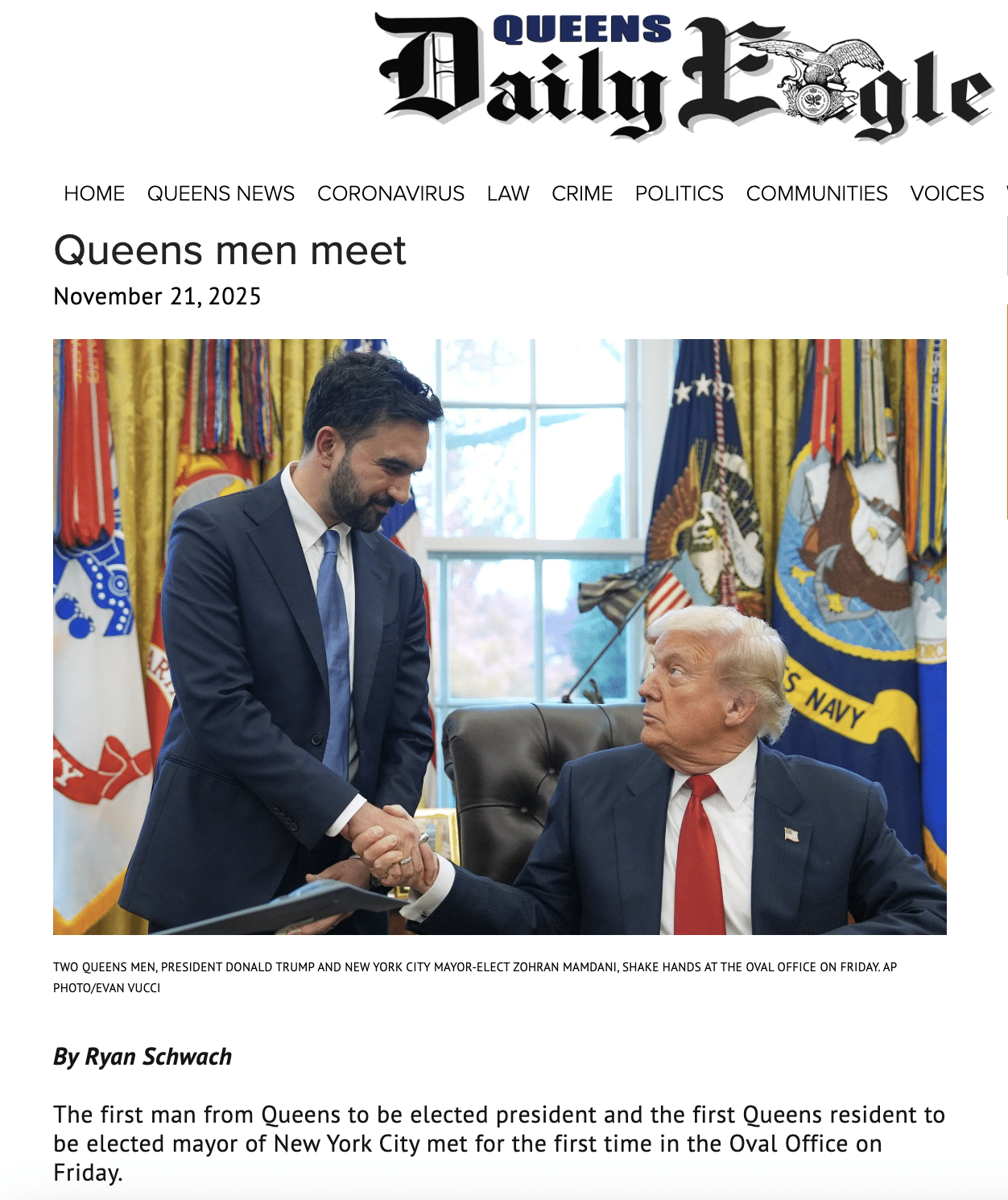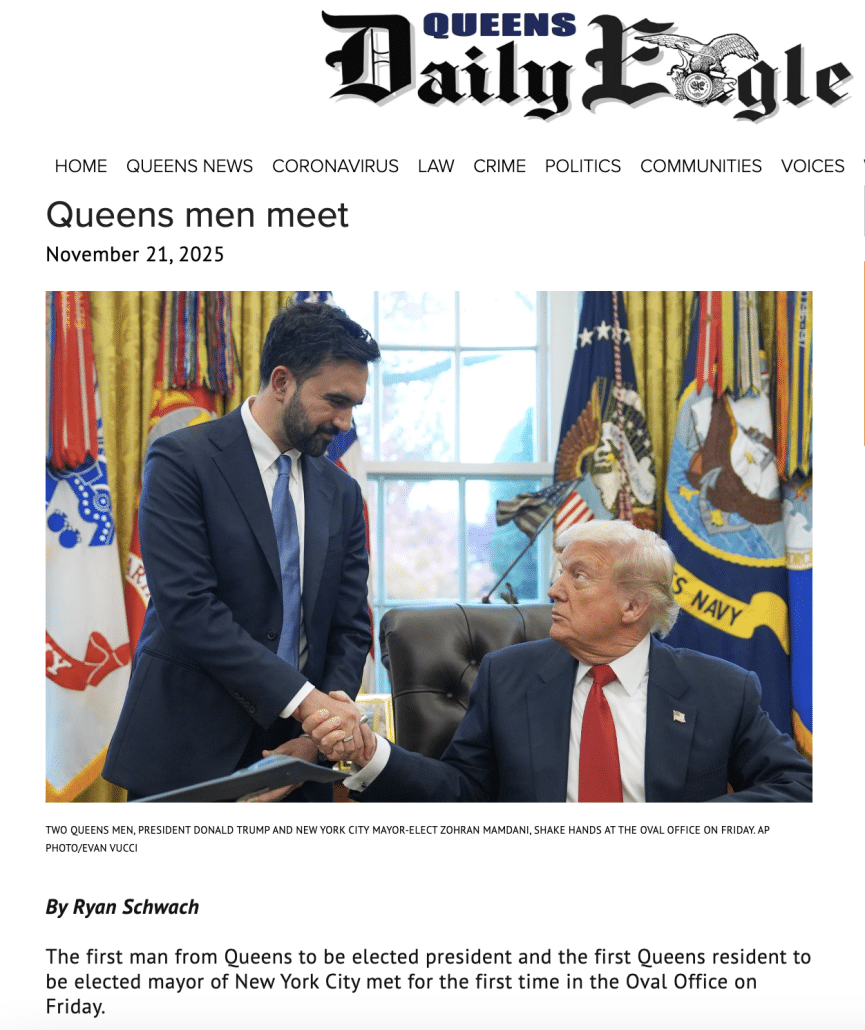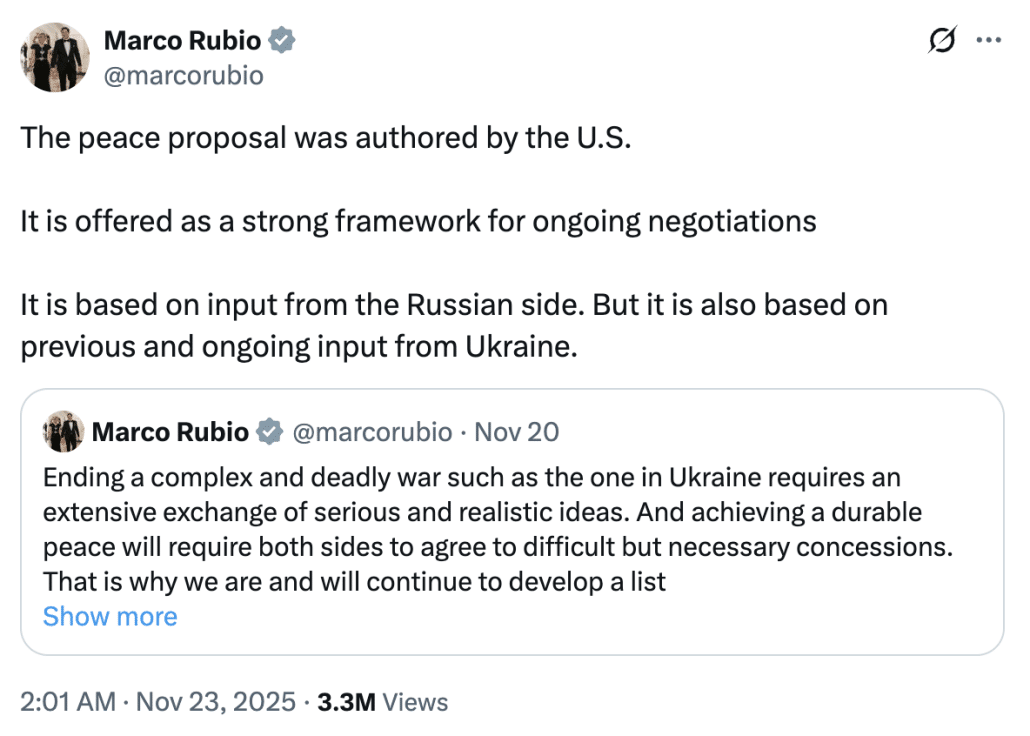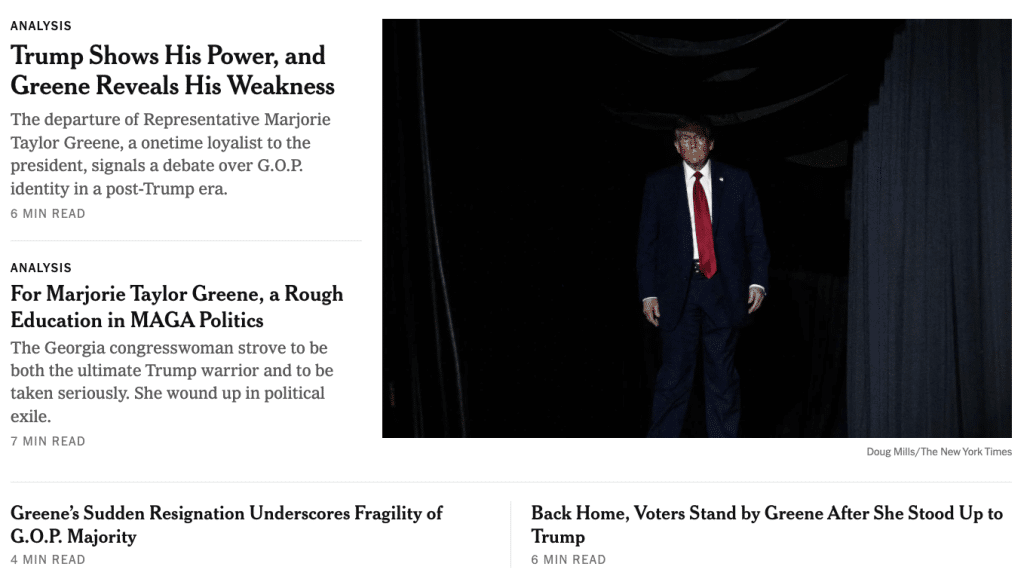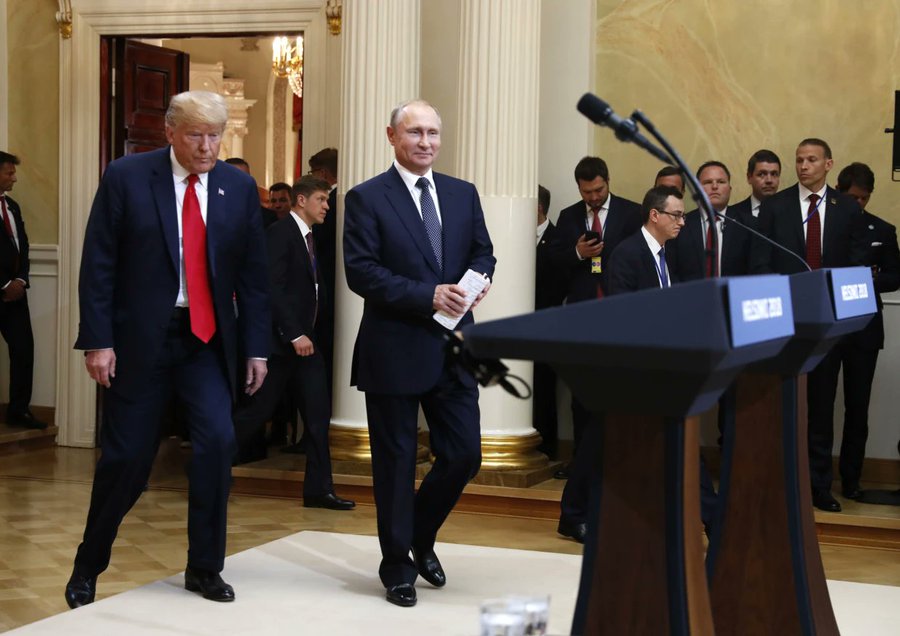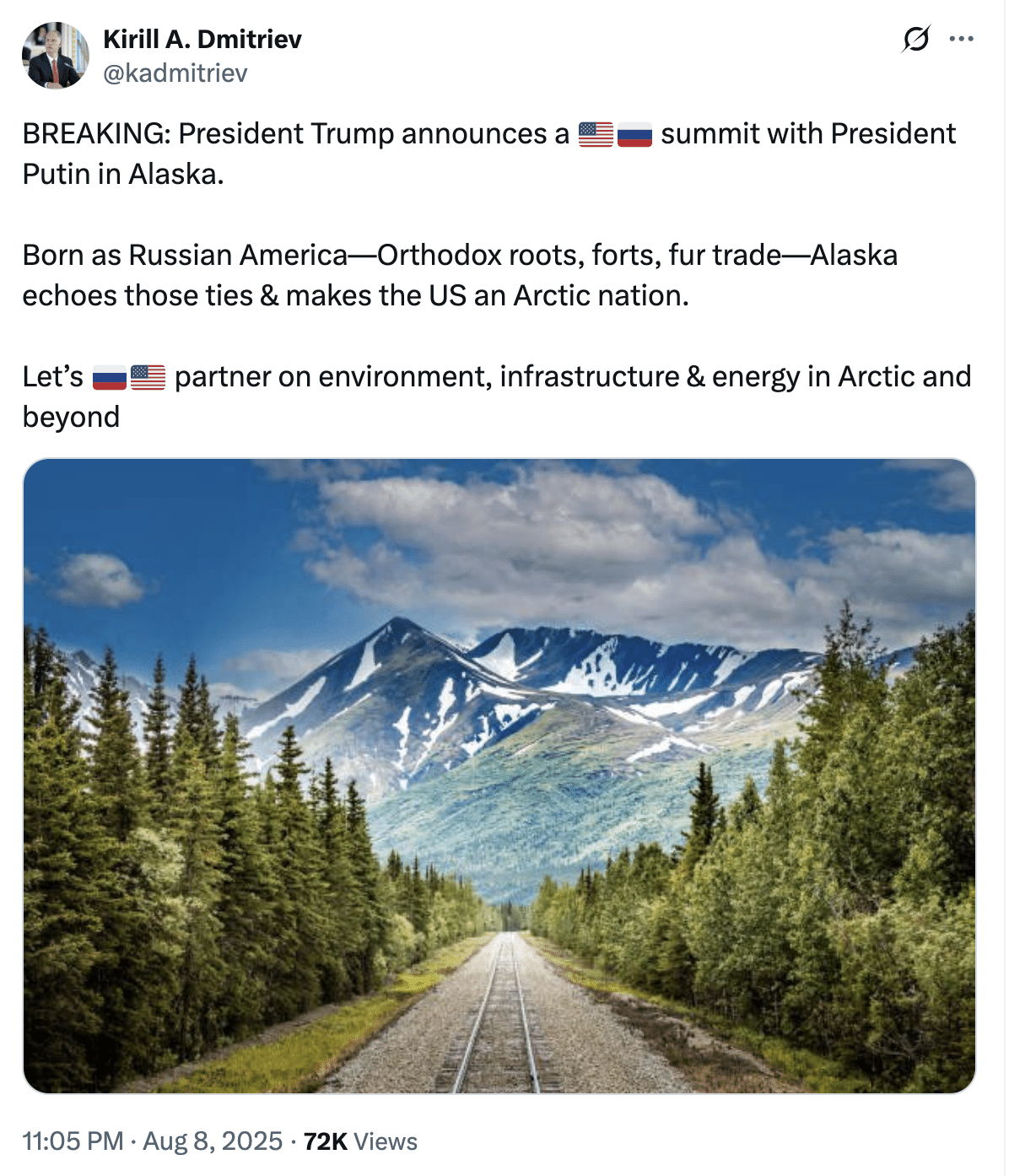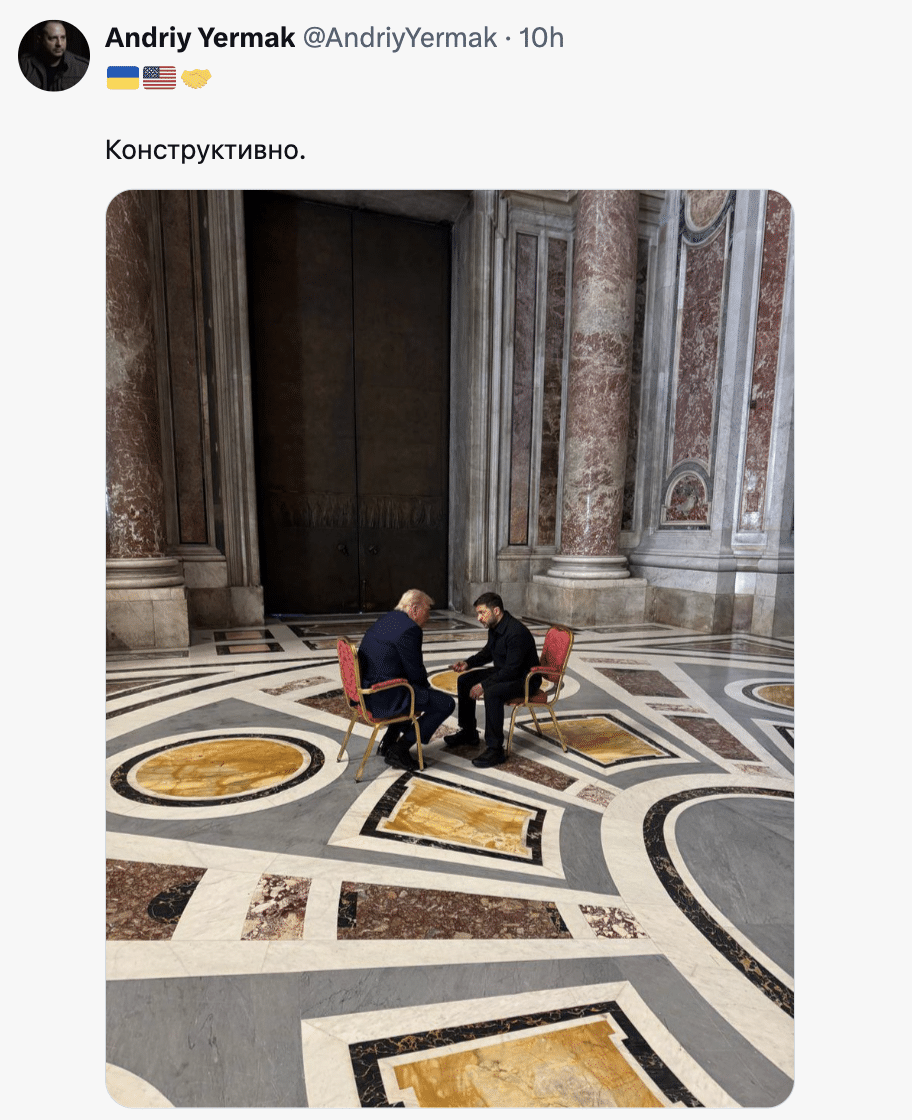Trump is in the process of spectacularly failing at least three high profile negotiations, all while insisting he’s making imaginary deals left and right.
No, there’s many deals.
When are they going to be announced?
You have to understand, I’m dealing with all the companies, very friendly countries. We’re meeting with China. We’re doing fine with everybody. But ultimately, I’ve made all the deals.
Not one has been announced yet. When are you going to announce them?
I’ve made 200 deals.
You’ve made 200 deals?
100%.
I’ll explain what those three are, but the larger point I want to raise is that these failures, all coming at roughly the same moment, will create a psychological and political need for Trump to seek some other way to look strong, even as these failures prove he’s not.
Harvard
Start with Harvard. That Trump failed what he intended to be a negotiation is evident by the timeline.
At first, Harvard hired Bill Burck, along with Robert Hur. Burck is a formidable lawyer, but quasi-adversaries of Trump (think Eric Adams, who also hired him) hire him because of his relationship with Trump, because he’ll be able to make a deal. When they hired Burck, it is clear, that’s what Harvard expected to do: to deal.
But in response to Trump’s White House overplaying their hand — who overplayed their hand is an open question — with a letter basically demanding to reorganize the most prestigious university in the US and a freeze of $2 billion in funding, Harvard prepared for war, both suing (adding a different set of lawyers) and launching a PR campaign that has not only explained the value Harvard (and higher education generally) brings to the US, but also set an example for and given cover to other universities, giving them the space to fight back, now more unified in opposing Trump’s power grab. While not directly a response to Trump’s attack, Harvard also has the ability and is taking steps to weather this fight financially, but doing so in ways that could influence an already volatile market.
The solidarity formed in response to Harvard’s created a problem. A WSJ piece on how elite universities came together after Harvard took a stand reports, “the Trump administration has been worried schools would team up in resistance, because it is harder to negotiate with a united front.”
After Harvard said they sue, Trump seeded the transparently bullshit story with NYT claiming that the letter — on purpose-made letterhead and signed by three officials — had been sent in error.
Then, almost immediately, came a frantic call from a Trump official.
The April 11 letter from the White House’s task force on antisemitism, this official told Harvard, should not have been sent and was “unauthorized,” two people familiar with the matter said.
The letter was sent by the acting general counsel of the Department of Health and Human Services, Sean Keveney, according to three other people, who were briefed on the matter. Mr. Keveney is a member of the antisemitism task force.
It is unclear what prompted the letter to be sent last Friday. Its content was authentic, the three people said, but there were differing accounts inside the administration of how it had been mishandled. Some people at the White House believed it had been sent prematurely, according to the three people, who requested anonymity because they were not authorized to speak publicly about internal discussions. Others in the administration thought it had been meant to be circulated among the task force members rather than sent to Harvard.
In a ridiculous attempt to reset the negotiations, White House senior policy “strategist” May Mailman blamed Harvard (whence she got her JD) for taking a signed letter seriously, but then invited them to resume negotiations with an offer of “a potential pathway to resume discussions” even while accusing Harvard of playing the victim. [!!!]
A senior White House official said the administration stood by the letter, calling the university’s decision to publicly rebuff the administration overblown and blaming Harvard for not continuing discussions.
“It was malpractice on the side of Harvard’s lawyers not to pick up the phone and call the members of the antisemitism task force who they had been talking to for weeks,” said May Mailman, the White House senior policy strategist. “Instead, Harvard went on a victimhood campaign.”
Still, Ms. Mailman said, there is a potential pathway to resume discussions if the university, among other measures, follows through on what Mr. Trump wants and apologizes to its students for fostering a campus where there was antisemitism.
Having now filed the lawsuit, Harvard plans to skip the steps many other adversaries (including the law firms) have taken, forgoing a request for a Temporary Restraining Order and Preliminary Injunction.
Harvard does not at present request a temporary restraining order or preliminary injunctive relief. Because this case concerns agency action subject to review of the administrative record under the Administrative Procedure Act, Harvard’s claims can be resolved expeditiously through cross-motions practice.
To move towards that, Harvard issued a demand for records that will show the claimed basis for Trump’s interference in Harvard is bullshit, and will also show who was involved (including at the White House, up to and including Trump himself) in manufacturing that pretense.
- Proof that the government had found a Title VI violation: “the materials considered to conclude there was a Title VI violation, and materials considered in concluding that the government action taken—a funding “freeze”—was the appropriate, legally-justified action in response”
- Basis to claim that Harvard had been ideologically captured, whatever that is: “the materials considered in concluding there was such ‘capture,’ and materials considered in determining, again, that a “freeze” was the appropriate and lawful response
- Proof that Trump retaliated by withdrawing funding: “the materials considered in presenting the demands and conditions the government did, and in proceeding with the freeze when Harvard declined the conditions, are part of the record”
- Basis for freezing specific grants (which Harvard has noted affect legal entities unrelated to Harvard itself): “All materials considered in arriving at those notices are also part of the record”
- The communications within the government about this, including from the White House, up to and including Trump: “all materials directly or indirectly considered by agency decisionmakers in freezing funding, even if those materials include directions by White House officials”
Given that antisemitism is a transparent pretense to interfere with the university and to predicate funding on a mandated ideology, this documentation will be rather damning. As Harvard’s complaint lays out:
[T]he Government wielded the threat of withholding federal funds in an attempt to coerce Harvard to conform with the Government’s preferred mix of viewpoints and ideologies. Defendants sent Harvard the April 11 Letter and, when Harvard refused the demands, ordered the freeze of billions of dollars in federal funding.
The day after Harvard pushed to accelerate this process, Trump issued a whiny tweet partly targeting Burck (but not by name), which Kaitlan Collins reported led Eric Trump to drop him as outside ethics counsel for Trump Organization.
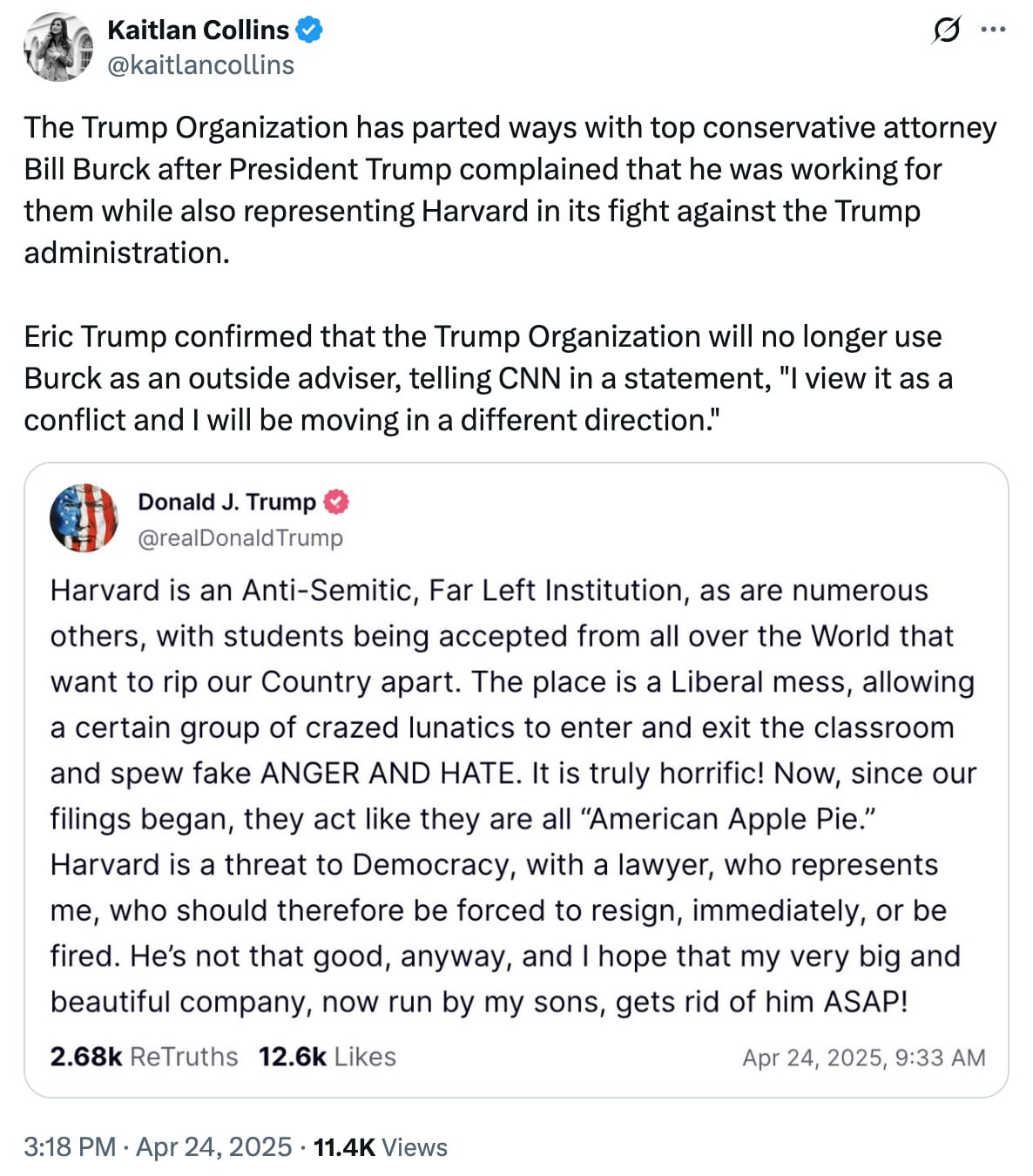
The reason Trump didn’t get what he appears to have wanted from Harvard — quiet capitulation and ongoing corruption — stems in significant part because his negotiators assumed they had more power than they had and they put that in writing, in the April 11 letter.
But according to the NYT, his negotiations also failed because he couldn’t explain what he wants.
The back and forth lacked specifics on what the administration wanted Harvard to do. The Trump administration lawyers said they would send Harvard a letter last Friday that laid out more specifics.
By the end of the workday on Friday, the letter had not arrived. Instead, overnight, the lawyers from Harvard received a letter, sent from Mr. Keveney in an email, that was far different from the one the school had expected.
I’m not sure I buy that. I suspect the letter really was what Trump wanted. He intended the “negotiation” to result in obeisance, not a deal crafted around specifics tied to the alleged antisemitism — something the law firms that capitulated have discovered to their chagrin.
Trump’s missteps with Harvard are far less consequential than the others, but it maps the same pattern: His need for adulation, his overstep, leading to failure.
Ukraine
Yesterday, Sergey Lavrov announced — in English — Russia’s terms for a deal: effectively, complete capitulation. Unless Trump takes an adversarial stance for the first time since he took office, this may well end it, with Russia and their North Korean cannon-fodder moving on to grander plans.
The dynamics around the failed Ukraine negotiation that brought us here are, in my opinion, entirely different from that with Harvard.
Those negotiations being wildly misunderstood by people — both people who should know better and people who’ve been wildly credulous in the past — treating this as a peace deal. In this funny story, for example, CNN continues to express credulity (as they have in the past), repeating Trump’s reported frustrations as if they are true, taking Trump’s public scolding of Putin as something other than performative.
President Donald Trump is frustrated his efforts to broker a peace deal between Russia and Ukraine have so far fallen short, and has privately told advisers that mediating a deal has been more difficult than he anticipated, sources familiar with the discussions told CNN.
Behind the scenes, he frequently brings up how much Russian President Vladimir Putin and Ukrainian President Volodymyr Zelensky hate one another, one of the sources said – an unsurprising fact, but one the president argues further complicates negotiations.
On Thursday, his agitation boiled over as Russia launched its worst assault on Kyiv since last summer, killing at least 12 people. The attack, Trump said, came at an inopportune moment: just as he believes he is on the verge of securing a deal, which he has told aides he wants in place by his 100th-day anniversary.
“I didn’t like last night,” Trump told reporters in the Oval Office, where he was meeting with Norway’s prime minister. “I wasn’t happy with it, and we’re in the midst of talking peace, and missiles were fired, and I was not happy with it.”
It was a rare moment of criticism directed toward Russia from a president whose ire over the course of his time back in office has mostly been aimed at the Ukrainians.
The exchange shined a light on a rising sense of exasperation among the president and his advisers at his inability to mount a successful pressure campaign against Putin to end the war. Trump bristled at a reporter’s suggestion that he had not applied pressure to the Russian leader.
“You don’t know what pressure I’m putting on Russia,” Trump snapped. “We’re putting a lot of pressure on Russia, and Russia knows that.”
Trump is frustrated that Russia won’t allow his capitulation to look like a peace deal; his pretense to care about Ukrainians just that.
Alex Finley is far more realistic, describing it as the Peace Deal that Never Was.
To be sure, I think someone coached Trump to say he wanted and was uniquely suited to craft a peace deal between Ukraine and Russia during the election. I think he believed all that when he said it! He even did some things during the transition — the beginning of it, anyway — that resembled things that you’d do if you actually expected you could make peace and win a Nobel prize for doing so (again, the kind of conceit you might encourage if you were manipulating Trump to act in a certain way).
But then, after Pam Bondi eliminated all possibility that fulfilling a quid pro quo with Russia would be investigated, this time, and in the wake of Nikolay Patrushev’s oblique warnings about campaign debts after the election, Trump — or the Russians — put Steve Witkoff in charge of “negotiations.”
This is actually consistent with what Russia was prepping to do in the 2016-2017 transition, where they sought someone someone — they tried both Jared Kushner’s buddy Rick Gerson and Erik Prince — to be an instrument whom Kirill Dmitriev could entice with financial goodies and in the process ensure “negotiations” ended as Russia wanted. It’s unclear why Gerson didn’t work out (probably timing). Prince turned out to be venal enough for the job (he was chasing a big deal with UAE), but not stupid enough. As Dmitriev was testing him in Seychelles, Prince remembered that he shouldn’t sell away US interests in Libya. And that was probably the end of things.
But Witkoff was the perfect combination of venal, stupid, and trusted by Trump. Once Russia had him in place, there was never going to be a successful negotiation. Never. There was and is only the question of how much advantage Russia can get and how much chaos in the Western alliance they can cause by letting Trump believe he might be able to claim a deal.
And the “deal” that wishcasters are treating as serious ends up delivering the quid pro quos Trump owed Russia from 2016: sanctions relief and Crimea. As Finley lays out, that was always the end goal, not peace.
This is actually the end point Trump has been trying to get us to all along, in my opinion. He desperately wants to appease Putin and do business with the man he admires. These discussions have already begun, with administration officials beginning to outline business deals (including in energy and in minerals).
My guess is Trump doesn’t care one way or the other if this “deal” gets accepted or not. If Ukraine refuses to accept it (indeed, Zelenskyy has already said the Crimea recognition point is dead on arrival), Trump will blame Ukraine for the lack of a deal and then say the US cannot wait any longer to restart business with Russia. If somehow the deal is accepted, Trump will celebrate and say now it’s time to get back to business with Russia.
I suspect the reason Trump has to pretend he is making a deal (or invent the thin appearance that Ukraine is at fault for his failure to make one) is because, most practically, there are enough Republicans who oppose his capitulation that he needs to at least provide them political cover for their lockstep support. He also needs to make it look like he’s not the big weak plaything of Vladimir Putin that he is.
While Trump’s failure to negotiate a real deal will bother him less than his failures to command obeisance from private universities and foreign countries, some of the reasons he has failed to craft even the appearance of a deal are the same.
As The Atlantic just laid out, for example, Trump’s paranoia about loyalty has made Mike Waltz an appendage at NSC, with the result that there is no policy process, no expertise, no adults.
On the priorities that matter most to the president, Waltz has less influence than Stephen Miller, the homeland-security adviser and deputy White House chief of staff for policy, whose team is part of the NSC. Miller treats the advisory body not as a forum to weigh policy options, current and former officials told me, but as a platform to advance his own hard-line immigration agenda. On the most sensitive geopolitical issues, including Russia’s war in Ukraine and U.S. interests in the Middle East, Trump’s longtime friend and special envoy, Steve Witkoff, sometimes draws on the support of the NSC staff but often operates independently, officials said.
Meanwhile, Waltz’s authority to hire and fire his own staff has been swept out from under him. Vetting by the White House’s Presidential Personnel Office, typically uninvolved in internal NSC matters, has derailed hiring and led to dismissals of career staff for infractions that include donating $50 to a Democratic Senate candidate eight years ago. (Screening for political affiliation is a prohibited employment action under federal law.)
The chaos has marginalized the NSC in the making of Trump’s foreign policy; major decisions have been reached without a traditional NSC process. Some staff with portfolios that include Russia’s war in Ukraine, for instance, first learned from news reports that Trump had decided to pause intelligence sharing with Kyiv. Once that choice was made, they were unable to answer questions that flooded in from agencies about the scope of the decision and how it would be implemented. The chaotic approach to foreign-policy decision making was also reflected in a lax attitude toward operations security, current and former officials told me. “There were always too many cellphones in the Oval Office,” one former official said. (The White House denied that cellphones are present during sensitive discussions.)
That’s how you end up with the quotes to CNN, the purported surprise on Trump’s part that Putin and Zelenskyy hated each other.
As with his other deals, Trump has absolutely no end game for the negotiation (unless it’s the financial benefits for himself that Russia has been dangling); he doesn’t know what he wants and claims to have wildly inaccurate beliefs about how the war started, though those beliefs may be necessary fictions to justify full capitulation.
Perhaps most importantly, Russia was able to manipulate Trump into capitulating on ever-increasing Russian terms by telling Trump he is strong. Trump can’t negotiate because his belief that he’s stronger than he is makes him vulnerable.
Trade deals
And all that might be enough if he weren’t capitulating to Putin even as he and Scott Bessent search for allies who’ll help Trump undo the damage he has done by starting a trade war.
I’ve already written about how Scott Bessent pitched this idea to Trump — to pause draconian tariffs with the excuse that Trump was using the threat of them to negotiate dozens of new trade agreements — in a rush, as the economy was going to shit because of the tariffs Peter Navarro rolled out. I’ve also written how foolish Bessent — Trump’s most grown-up advisor — looks when he claims we have a bunch of friends rushing to make a deal to isolate China, even as Trump pisses off all our friends by capitulating to Putin.
Since Bessent staved off immediate collapse by convincing Trump to adopt this “strategy,” he has settled into a rhythm. Someone like Charles Gasparino describes an imminent deal — often sourced to bankers who learned of it from private speeches by Bessent that encourage insider trading — with one or another country. The market spikes. Then the deal never happens. Sunday, when asked about Trump’s claim to have hundreds of deals, Bessent explained those are just sub deals. Along the way, Bessent confessed that they’re only focused on 17 deals plus China in the 90 day period when (Peter Navarro promised) Trump would make 200.
BESSENT: I believe that he is referring to sub deals within the negotiations we’re doing. And, you know, Martha, if there are 180 countries –
RADDATZ: But those aren’t actual deals?
BESSENT: Martha, if there are 180 countries, there are 18 important trading partners, let’s put China to the side, because that’s a special negotiation, there’s 17 important trading partners, and we have a process in place, over the next 90 days, to negotiate with them. Some of those are moving along very well, especially the – with the Asian countries.
All the while, Bessent posts frequently and obsequiously on Xitter to butter up Trump’s ego.
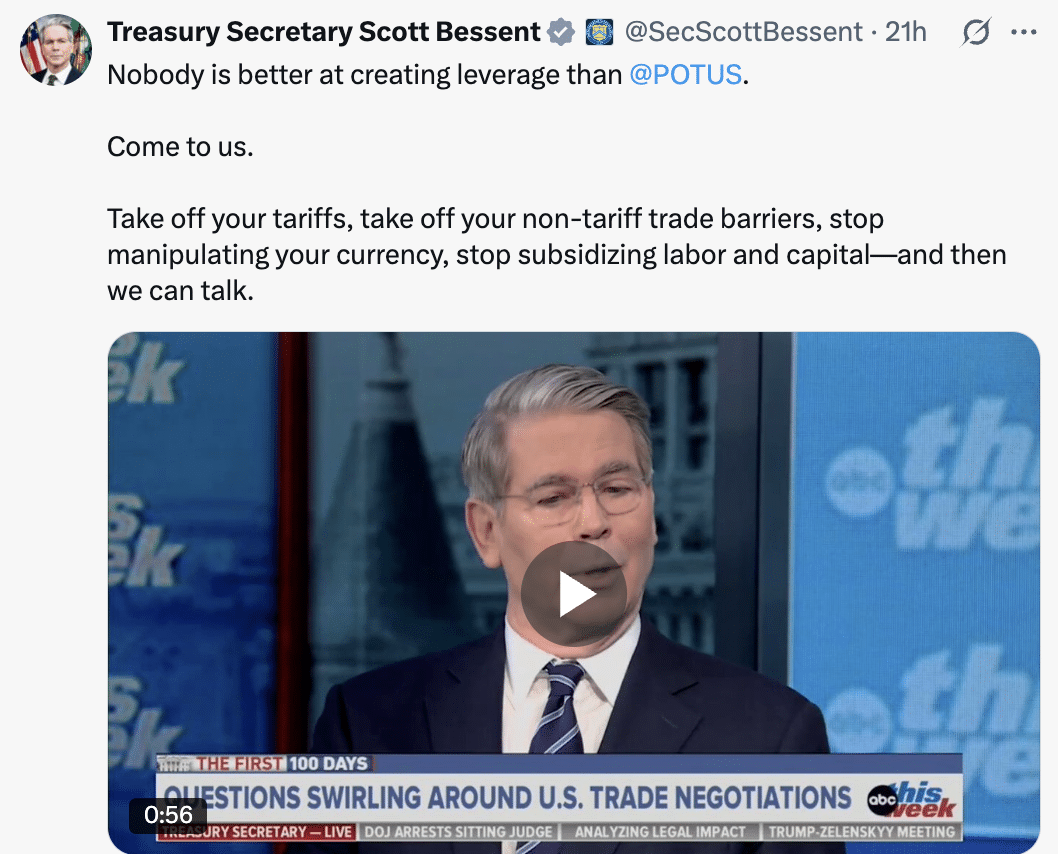
But even Gasparino admits Trump is looking for little more than some means to save face. Justin Wolfers has been having fun on TV pointing out that Trump is preparing to claim that the existing free trade deal with key allies is a big victory (like he did during early confrontations with Mexico and Colombia). And even then, the American allies with which Bessent claims will be the easiest to make deals are instead making deals with each other (and India, another country allegedly prepared to deal, is instead threatening military action against Pakistan).
As it is, China knows it has leverage over the United States, both because Trump already blinked and because he backed himself into a hole, and that’s before shortages start showing up in a few weeks. Bessent, desperate to sustain the con, insists that the Big Box stores who were issuing dire warnings exactly a week ago, today said, “I assume they preordered,” as if it’s not his job to check.
I fear that, having talked Trump off the ledge Navarro built for him, having staved off Trump frustration only by public obeisance and attacks on the press, Trump will now hold Bessent responsible for the impossibility of this task (though to be sure, Bessent appears to have oversold how easy this would be). When the shit really starts to hit the fan in a few weeks and Bessent’s proposed way out doesn’t work, Trump will need someone to blame.
At this point, I worry Bessent will be the first cabinet member to be fired, before more worthy candidates like Pete Hesgeth and Mike Waltz, because Trump will need a scapegoat. If that happens, there could be a snowball effect, not least because Bessent is the one who backed Trump off his plans to fire Jerome Powell.
Trump’s desperation to reassure the markets that all the damage he caused will have an upside increasingly results in batshit exchanges like this one.
Can you share with whom?
Because the deal is a deal that I choose. View it differently: We are a department store, and we set the price. I meet with the companies, and then I set a fair price, what I consider to be a fair price, and they can pay it, or they don’t have to pay it. They don’t have to do business with the United States, but I set a tariff on countries. Some have been horrible to us. Some have been okay. Nobody’s been great. Nobody’s been great. Everybody took advantage of us. What I’m doing is I will, at a certain point in the not too distant future, I will set a fair price of tariffs for different countries. These are countries—some of them have made hundreds of billions of dollars, and some of them have made just a lot of money. Very few of them have made nothing because the United States was being ripped off by every, almost every country in the world, in the entire world. So I will set a price, and when I set the price, and I will set it fairly according to the statistics, and according to everything else. For instance, do they have the VAT system in play? Do they charge us tariffs? How much are they charging us? How much have they been charging us? Many, many different factors, right. How are we being treated by that country? And then I will set a tariff. Are we paying for their military? You know, as an example, we have Korea. We pay billions of dollars for the military. Japan, billions for those and others. But that, I’m going to keep us a separate item, the paying of the military. Germany, we have 50,000 soldiers—
I’m just curious, why don’t you announce these deals that you’ve solidified?
I would say, over the next three to four weeks, and we’re finished, by the way.
You’re finished?
We’ll be finished.
Oh, you will be finished in three to four weeks.
I’ll be finished
This goes to the core of why Trump is facing three embarrassing failures.
Trump believes he has this power. He has to believe he has this power. He has to believe he has leverage, at least for psychological reasons, and probably for very big political ones too.
He has to sustain the con.
He also has surrounded himself with sycophants — Bessent is the least unqualified!! — who refuse to do anything but applaud his disastrous instincts. And whether it’s miscalculating in response to Harvard and then trying to deny it, sending someone who knows nothing about Russia to “negotiate” with an old KGB hand, or letting Peter Navarro anywhere close to a decision-maker, the sheer incompetence of the people who surround Trump make it less likely he could negotiate if he had a clear strategy.
But he doesn’t. We’ve heard from international partners and Harvard that he couldn’t explain what he wanted. We know what Trump wants for Russia, but as a result his demands on Ukraine keep changing.
Ultimately, Trump is staking one after another negotiation on his need for everyone — the entire world — will bow down to him.
And that may cause follow-on problems.
Most Americans won’t feel the pain of the fight with Harvard — at least, they won’t understand that the lifesaving cancer treatment they were hoping would save their lives has been shut down thanks to Trump.
Thus far, Trump has managed to spin the totality of his humiliation at the hands of Vladimir Putin. That may change. Particularly if the rest of his con starts to collapse, his claim to be a peacemaker might too. But for now, that’s a sideshow for most Americans.
The trade war is different. That has begun to cause and will cause increasingly sharp pain going forward, At some point, starting in a few weeks, Trump will face the political and psychological blowback from the damage his trade war has caused. I wouldn’t be surprised if China aimed to ensure maximal humiliation in how he does that.
And all these things are happening at once.
This certainly presents an organizing opportunity — a moment to convince Americans Trump has harmed, and their elected representatives, to take steps to reverse the damage Trump has done. A moment to point out that Trump, given the team he wanted with no limits on what he could do, shat the bed, and did so after bullying the rest of the world and losing; Trump’s opponents need to be laying the ground for accountability, with lockstep discipline, now. This is a moment to point out that Trump invented an emergency to make a power grab, and with that invented emergency created a real, global one.
That’s an opportunity. But even setting aside the likelihood of follow-on damage as Trump tries to avoid accountability, this moment of failure will also be one of extreme risk for a malignant narcissist like Trump.
These failed negotiations happened because Trump sought to create the appearance that he has unlimited power; they failed because he does not have that power. As the impact of Trump’s disastrous attack on the economy begins to hurt Americans, exposing that Trump doesn’t have the power he claims to impose his will, he will have both a psychological need to do something else to look strong, and a political need to convince Republicans he still has the power to determine their political fate.
He doesn’t have the power to win these negotiations. But he still has plenty of ways to avenge the exposure of his own weakness.
Update: Thomas Edsall interviews a bunch of experts on how Trump might respond to losing support. Most raise the kinds of concerns I do here.
Update: I beat Paul Krugman to making a similar argument because I didn’t lose power yesterday.
The Canadian election, then, demonstrates why Trumpist trade policy, and foreign policy in general, is doomed to catastrophic failure. Trump isn’t trying to drive tough substantive bargains. Mainly, he seems to want to indulge in narcissism, demanding that other nations humiliate themselves so he can put on a display of dominance. And America doesn’t have remotely enough leverage, even against Canada, to make such demands. You could say that Trump is a reverse Godfather, making offers other countries can’t accept.
Consider the state of negotiations — or, actually, non-negotiations, since talks appear to have broken down — with Japan, another country Trump appears to have thought he could bully. Japan does sell a lot to the United States and might have been willing to offer something to preserve its access to our market.
But reports indicate that Japanese representatives sent to Washington left without accomplishing anything because they found Trump’s people impossible to deal with. The Americans insisted that the Japanese make offers without giving any indication of what our side wanted — in effect, they demanded that Japan make a show of obeisance without any reason to believe that it would get anything in return. The Japanese government wouldn’t, probably couldn’t do that. After all, it has to answer to its own voters. So there is no deal.
And then there are the Chinese, who — unlike the Canadians or even the Japanese — probably have more economic leverage over us than we have over them. They have no interest in helping Trump sustain his fantasies of dominance. Bear in mind that Trump’s trade war is working out very well for them. Bloomberg reports that
President Xi Jinping’s diplomats are fanning out across the world with a clear message for countries cutting deals with Donald Trump: The US is a bully that can’t be trusted.
Unfortunately, they’re right. And Trump’s repeated insistence that the Chinese are negotiating with him, when they say they aren’t, comes across as pathetic.
Update: Dan Drezner catalogs four ways Trump broke basic rules of negotiation:
LESSON #1: Hurt the target more than one’s self. The U.S. economy is much bigger than most other economies in the world, so the administration clearly believed that it had leverage over everyone else. And, to be fair, that is likely still true of a lot of smaller countries. The administration may well succeed in wringing concessions from India or South Korea.
It is far from obvious that this is true of China or the European Union however.
[snip]
LESSON #2: Clearly articulate one’s demands. This ain’t rocket science! For a deal to be struck, the target needs to know what concessions would satisfy the coercer! Instead, there are widespread reports that even loyal allies don’t know what the Trump administration wants. Treasury Secretary Scott Bessent is even trying to claim that this is a purposeful strategy!
[snip]
LESSON #3: Minimize expectations of future conflict. All else equal, when the target anticipates more frequent coercion attempts in the future, they will be less willing to acquiesce in the present. And if Trump has succeeded in one thing, it is in making the rest of the world believe he will coerce anyone and everyone again and again and again and again. For fuck’s sake, some of his first targets during his second term were signatories to a trade deal he negotiated during his first term!
Everyone expects Trump to break deals in the future — which disincentivizes negotiating any concessions in the present.
LESSON #4: Build a multilateral coalition. Multilateral economic sanctions tend to work better than unilateral sanctions. An institutionalized coalition of sanctioners can give a target pause in a way that unilateral action might not. And, of course, Donald Trump did the exact opposite of this. Only too late did they realize that maybe coordinated approach towards China could be a good idea. Instead, now it’s China going around talking to other countries about how crazy the United States is behaving.




